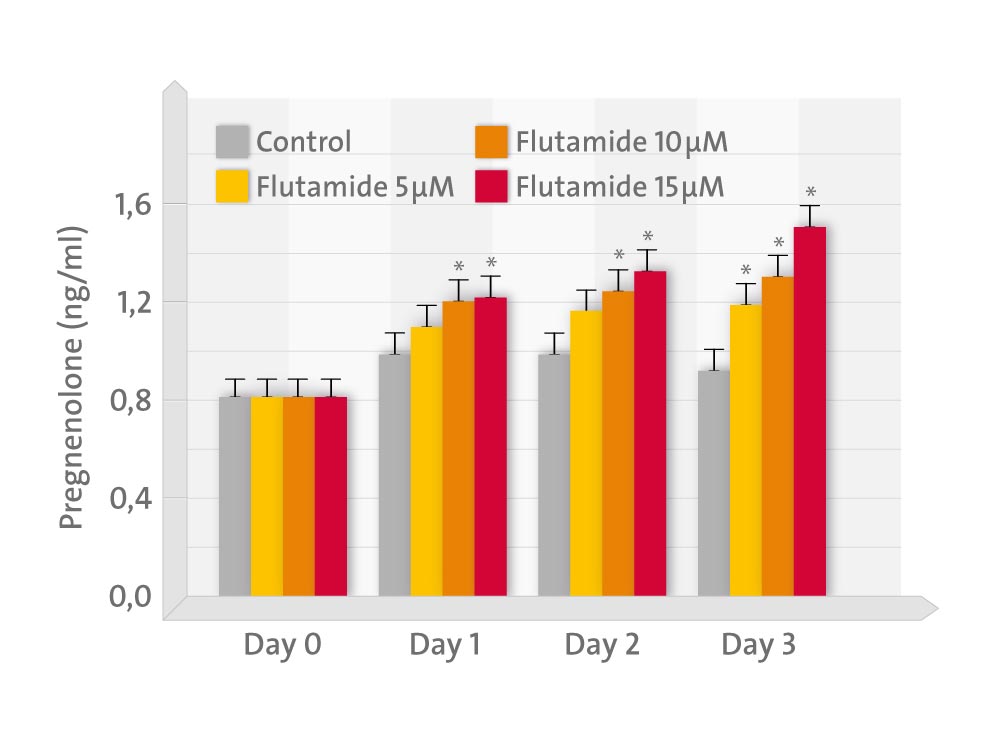The aim was to study the effects of flutamide on cell proliferation, in vivo tumour growth and steroid production in canine and human IBC cell lines.
IPC-366 and SUM149 cell cultures were exposed to flutamide concentrations for 72 hours. Additionally, IPC-366 and SUM149 xenotransplanted mice were treated subcutaneously with flutamide 3 times a week for 2 weeks.
Steroid hormones determination in culture media, serum and tumour homogenates (pregnenolone, progesterone, androstenedione, testosterone, dihydrotestosterone, 17β-oestradiol and oestrone sulphate) were assayed by EIA.
in vitro cell proliferation percentages showed a decrease in all flutamide dosages in IPC-366 and SUM149. in vivo flutamide reduced tumour size by 55 % to 65 %, and metastasis rates decreased. In treated groups, androgen levels in culture media, serum and tumour homogenates were increased as oestrogen levels decreased.
These results suggest that flutamide treatment inhibits cell proliferation and promotes tumour reduction by increasing androgen levels and also support future therapy approaches.
